Perhaps the greatest food myth of all time is that “carbs are bad for you”.
Yes, processed carbohydrates are unhealthy because they lack nutritional density and in excess cause health problems. But lumping all carbs into the same category can also negatively affect your health.
Why? Because fruits and vegetables are also carbohydrates (complex), and we need plenty of them in our diet to maintain optimal health.
While we should avoid heavily processed foods, we should base our meals on starchy carbs, particularly the higher fibre varieties found in fruits and vegetables and whole grains.
And fiber is key here, because a generous percentage of carbohydrate in fruit and vegetables is fiber.
Additionally, many of the best carbs to eat contain resistant starch, which comes with many health benefits.
Resistant starch feeds the friendly bacteria in your gut and increases the production of short-chain fatty acids. Studies have shown that it can help with weight loss and benefit heart health, as well as improve blood sugar control, insulin sensitivity and digestive health.
So while you might be thinking carbs=weight gain; actually many whole-food carbs contribute to weight loss and weight sustainability.
As you'll know from your high school biology classes, the human body is designed to run on carbohydrates. Carbohydrate is our optimal form of energy.
Carbohydrate is broken down into glucose (sugar) before being absorbed into the bloodstream. Glucose then enters the body's cells with the help of insulin. The glucose is used by your body for energy, fueling everything you do, be that running or simply breathing.
If you're worried about which carbs you should be eating, add the foods below to your weekly shopping list.
21 Best Carbs to Eat
1. Beetroot (Beets)
Carb Content: 16 grams per cup
Beetroot is an excellent source of vitamins, minerals, and antioxidants. They’re also full of folate, manganese, magnesium, iron, copper, vitamin C, and potassium.
Beets also contain nitrates, which get converted into nitric oxide and help reduce blood pressure – and have other cardiovascular benefits (1).
Studies also found that the betalains in beets have antioxidant effects that protect against oxidative stress, which is an imbalance of free radicals and antioxidants in the body that can lead to cell and tissue damage (2).
Beets can be eaten baked, roasted, or boiled and are commonly eaten as a soup called borscht.
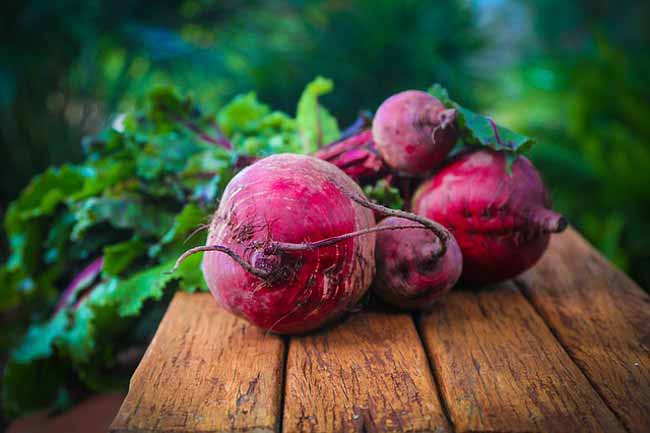
2. Carrots
Carb Content: 6 grams per medium carrot
Carrots are full of nutrients and are even more nutritious when eaten uncooked. They’re also a good source of beta-carotene, potassium, and antioxidants.
A review of over 80 articles found that eating carrots is associated with a 26% reduction in the risk of gastric cancer (3).
Another study found that eating carrots was associated with a decreased risk of breast cancer (4).
Eat carrots raw with a dip like hummus or bake them for a perfect side dish.

3. Potatoes
Carb Content: 37 grams per medium-sized potato
There’s a reason potatoes have been a staple food for generations. Aside from being a carb powerhouse, they are full of vitamins and minerals such as iron, copper, manganese, vitamin C, magnesium, potassium, and B vitamins.
Potatoes also contain resistant starch, which has been shown to help remove excess blood sugar in people with type 2 diabetes (5).
It’s easy to prepare potatoes by baking, boiling, roasting, or grilling them as part of a healthy meal.
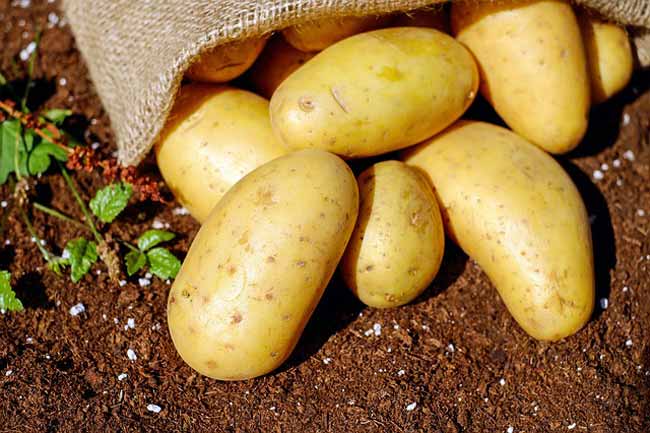
4. Bananas
Carb Content: 27 grams per medium-sized banana
In addition to being low calorie and high energy, bananas boast a healthy amount of potassium, vitamin C, manganese, and vitamin B6.
Like potatoes, bananas also contain resistant starch as well as pectin. One study found that pectin may be protective against colon cancer (6).
The amount of potassium in bananas has also been shown to help with blood pressure, hypertension, and stroke (7, 8).
Put a banana on your breakfast cereal, add it to a smoothie, or eat it as a snack on its own.

=> Discover the benefits of bananas with brown spots!
5. Dates
Carb Content: 70 grams per 4 dates
Dates are often referred to as nature’s candy because of their sweetness, but dates pack a lot of fiber too, and have more potassium per 100 grams than bananas.
One study showed that those who ate 7 dates a day had an increase in bowel movements, and that the consumption of dates may reduce the risk of colon cancer (9).
Dates have also been linked to the natural progression of labor, with women who consumed them during pregnancy going into labor naturally and being in labor for shorter amounts of time (10).
Add dates to your favorite dessert, put them in a smoothie with some coconut water for a sweet drink, or just snack on them whole.

6. Mangoes
Carb Content: 21 grams per cup (sliced)
Mangoes are a tropical fruit known for their rich orange color and juicy flesh.
They are packed with vitamins and an excellent source of carbohydrate. Mangoes are rich in potassium, magnesium, and vitamins A, C, K, and E.
Mangoes also contain polyphenols and flavonoids, which are major contributors to the total antioxidant capacity in mango fruit.(11).
One study found that consuming mangoes every day for two weeks helped lower blood pressure in women (12).
Mangoes are delicious enough to be eaten on their own but can also be added to a tropical fruit salad or smoothie.

7. Peas
Carb Content: 22 grams per cup
Green peas are small in size but still manage to contain a lot of important nutrients and other benefits.
They are also rich in potassium, folate, iron, zinc, and are an excellent source of fiber and protein.
Peas are also a great protein source. One study found that supplementing with pea protein contributed to an increase in muscle thickness, making it a good alternative to whey-based proteins (13).
Cooked peas are a classic side dish but can also be pureed or added to a salad full of greens.
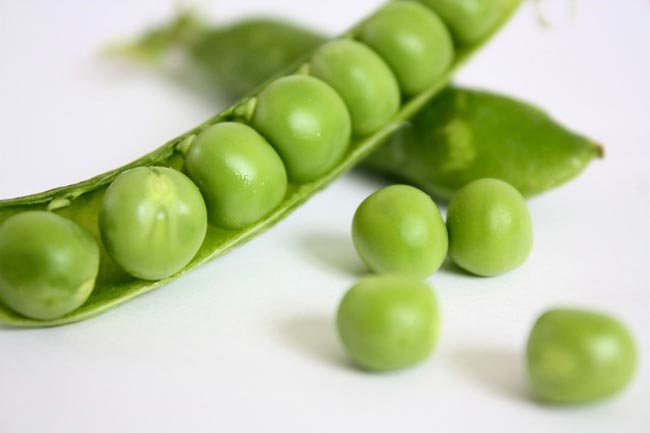
8. Pumpkin
Carb Content: 10 grams per cup
Although they are more abundant in the fall, pumpkins can be eaten year-round in a variety of ways.
In addition to being carb-laden, pumpkin comes packed with potassium and vitamin C and A.
Pumpkin also contains beta-carotene, which is an antioxidant that has been connected to protecting against dementia and Alzheimer’s disease (14).
Pumpkins aren’t just for pie anymore, they can be made into a soup or pudding, added to oatmeal or in baking. Pumpkin is also low fat and low in calories, making it one of the best carbs.
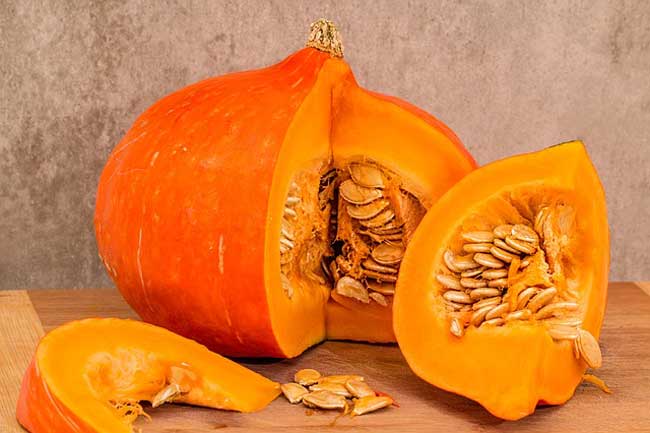
9. Turnip
Carb Content: 8 grams per cup
Although turnip may not be as popular as some of the other foods on the list, it comes with similar benefits and is a good source of potassium, folate, calcium, and vitamin C.
Turnips contain indoles, a phytonutrient that has been linked to a reduced risk of developing colon cancer due to brassinin, a compound that helps kill cancer cells (15).
When sprouted, turnips are very high in glucosinolates that have many health benefits (16).
Try roasting turnips or making them into a mash similar to potatoes. They are also delicious in soups or combined with other vegetables to make dips and sauces.
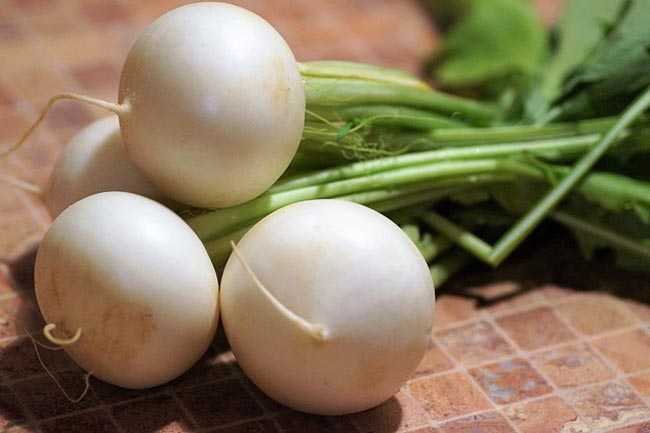
10. Sweetcorn
Carb Content: 41 grams per cup
Corn has been a staple for many cultures throughout the world for centuries. It is an excellent source of folate, vitamin A, potassium, and phosphorus.
One study on corn found that its fiber may have a positive effect on colon health because of the fermentation process (17).
Another study demonstrated that eating corn in the form of popcorn can be beneficial in preventing diverticulosis (18).
So throw some corn on the grill, add it to salsa or chili, or just pop some popcorn and enjoy the benefits.
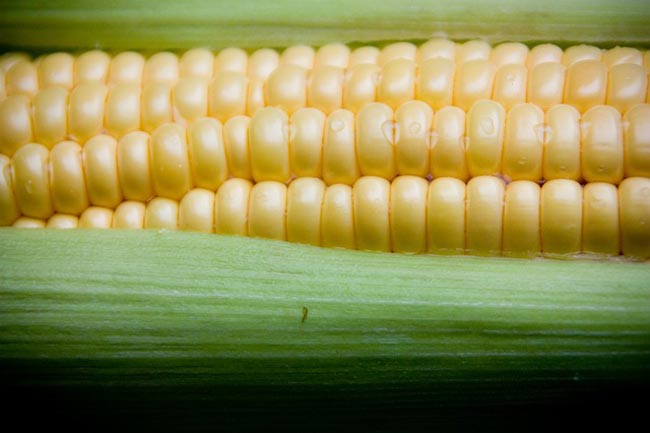
11. Quinoa
Carb Content: 39 grams per cup
Quinoa, which has recently enjoyed renewed popularity, is an excellent source of protein and is full of fiber too.
Many mistake it for grain because of how it is prepared, but it’s actually a seed.
It’s also gluten-free, making it ideal for those who are allergic to gluten or suffer from Celiac disease.
Rich in calcium, potassium, folate, and selenium, quinoa is full of nutrients. Research in rats showed that quinoa reduces total serum cholesterol and glucose levels (19).
Make a cold quinoa salad or use as a rice replacement to eat with stir fry or curry.
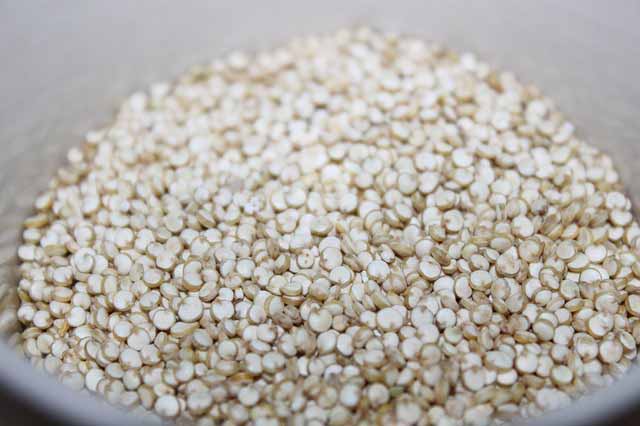
12. Oats
Carb Content: 55 grams per cup
Oats have long been a staple for breakfast because they are nutritious and loaded with energy, making them one of the best carbs to eat.
Oats are also a good source of protein and fiber and many other vitamins and minerals such as folate, phosphorus, potassium, and zinc.
Oats are known for their connection with lowering cholesterol and several studies have found that the fiber is a contributing factor (20).
Oats are also associated with better heart health and consuming cereals like oats can help reduce the risk of coronary heart disease (21).
Eat oatmeal in the morning or add it into baked goods like bread or cookies.
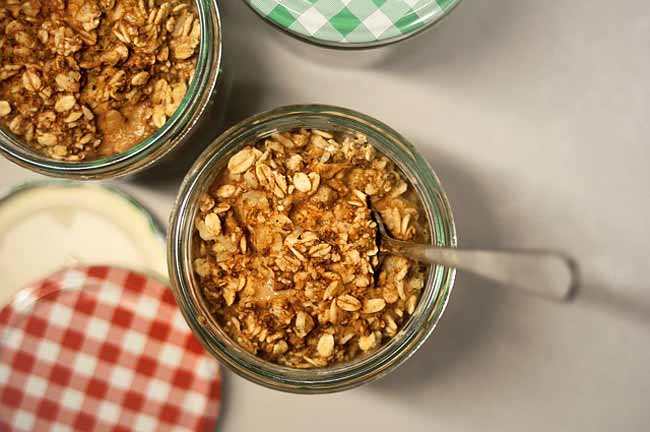
13. Buckwheat
Carb Content: 40 grams per cup
Like quinoa, buckwheat is also a pseudocereal that is a seed but cooked like a grain. It’s also gluten-free and highly nutritious, containing antioxidants, minerals, protein, and a lot of fiber.
Studies have found that it can play a role in preventing hypertension and high cholesterol (22). It was also shown to help with high blood sugar levels among populations who eat it as a staple food (23).
Buckwheat can be eaten as a hot breakfast cereal, cooked to replace rice in stir fry dishes, and is also eaten as soba noodles in Japanese cuisine.
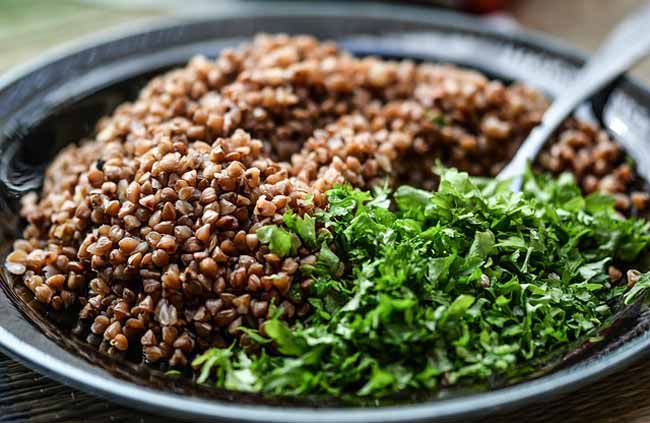
14. Sweet potatoes
Carb Content: 27 grams per medium-sized sweet potato
The aptly named sweet potato is a delicious carb option that is flavorful enough to be eaten by itself.
Sweet potatoes contain resistant starch, which has been shown to help remove excess blood sugar in people with type 2 diabetes.
Potatoes are also high in fiber, which makes them ideal for those who want to reduce their risk of diabetes (23).
In addition to their nutrients, sweet potatoes contain a lot of antioxidants. The darker the potato, the higher the antioxidant content (24).
So don’t hesitate to swap regular potatoes for sweet potato fries, or bake or boil to eat on the side of your meal for a healthy dose of carbs.
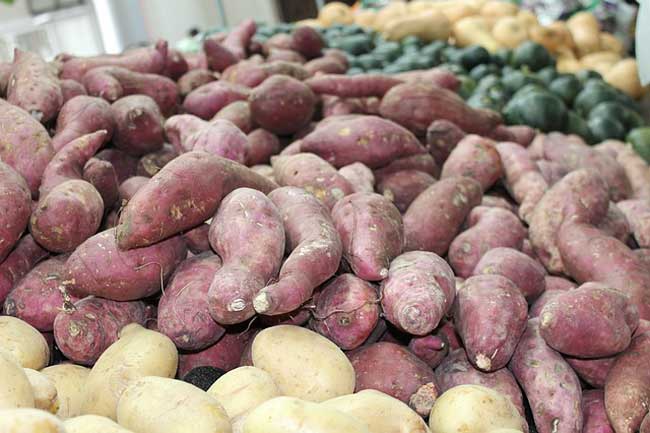
15. Oranges
Carb Content: 15 grams per medium orange
This citrus fruit is known for its high quantity of vitamin C but is also rich in potassium, folate, fiber, and thiamine.
Drinking orange juice regularly can help lower blood pressure and has also been linked to the prevention of kidney stones (25, 26).
Eat oranges as a snack by themselves or drink freshly-squeezed orange juice in the morning for breakfast.
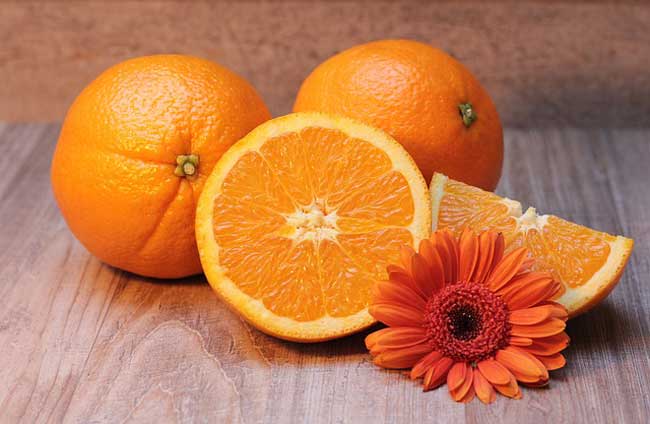
16. Blueberries
Carb Content: 21 grams per cup
You’ve probably heard blueberries referred to as a superfood because they are high in antioxidants.
Blueberries also contain many other vitamins and minerals such as vitamin C, manganese, vitamin K, and fiber.
All that superfood talk is well-founded, as studies show that the antioxidant effect of eating blueberries can give added protection against DNA damage (27).
They also help decrease oxidative stress and have been shown to help improve memory in older adults (28, 29).
So eat a handful raw, put them on top of your favorite breakfast cereal, or make some classic blueberry muffins.

17. Grapefruit
Carb Content: 13 grams per half fruit
This slightly sour and tangy fruit is especially rich in vitamin A but also contains vitamin C, folate, phosphorous, and calcium.
Eating grapefruit has been found to help with weight loss and improves insulin resistance (30).
Other studies have also shown that grapefruit pectin can inhibit atherosclerosis by reducing the narrowing of arteries (31).
Add segments of this juicy fruit into a salad, juice it for a refreshing drink, or bake it in the oven until caramelized to perfection.

18. Apples
Carb Content: 25 grams per medium-sized fruit
This fruit is one of the most popular and is said to have many health benefits, hence the saying “an apple a day keeps the doctor away”.
Apples are also high in fiber, potassium, vitamin C, and antioxidants. Although they are sweet, apples are relatively low on the glycemic index and may help control blood sugar (32).
Eating apples has also been linked to weight loss and may even help prevent lung and colon cancer (33, 34).
Enjoy an apple as a snack with some nut butter, bake some apple muffins, or bake one whole and eat it with brown sugar and cinnamon.
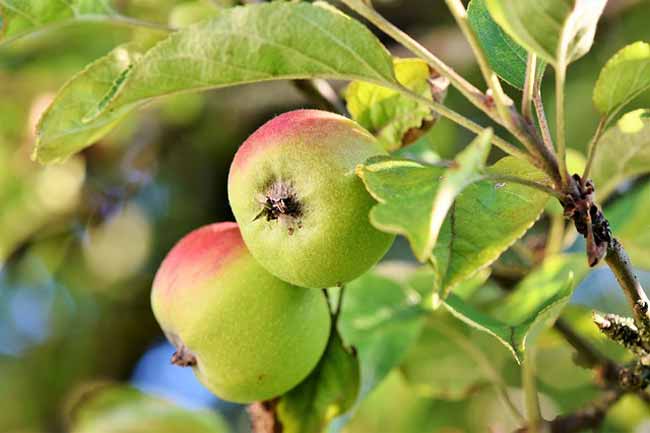
19. Kidney Beans
Carb Content: 40 grams per cup
Most kidney beans are red but they can also be found in other colors and patterns. These legumes are high in fiber, protein, iron, copper, potassium, and folate.
One of the primary health benefits of kidney beans is their association with a decreased risk of stomach, colorectal, and kidney cancer (35).
They are also linked to a positive influence on the glycemic response, which may decrease the risk of developing diabetes (36).
Swap out your tofu for kidney beans in a vegetable bowl for a protein-rich meal, or put them in a savory curry to eat with steamed rice.
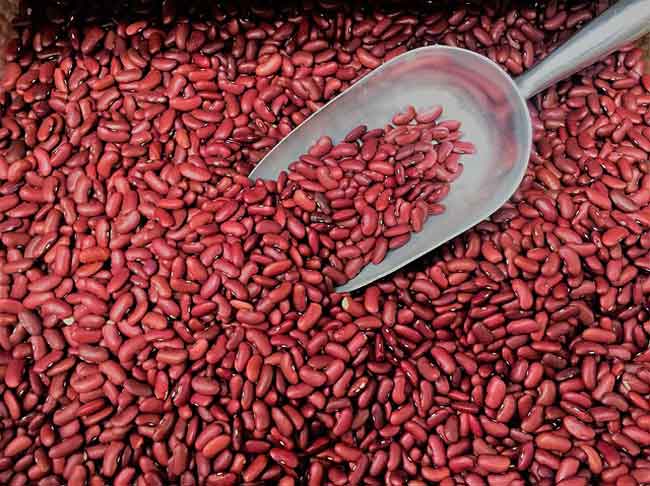
20. Chickpeas
Carb Content: 45 grams per cup
Chickpeas, also called garbanzo beans, are a legume that is commonly used to make hummus. They are high in protein as well as fiber, iron, and B vitamins.
Eating chickpeas has been found to have beneficial effects on several diseases, including type 2 diabetes and some cancers (37).
These beans are also very filling, and one study found that those who consumed chickpeas had a decrease in appetite which, in a second study, led to eating healthier food (38, 39).
Chickpeas are versatile and can be eaten as the primary ingredient of a dish, added to pizza as a topping, or mashed to make a dip or spread.
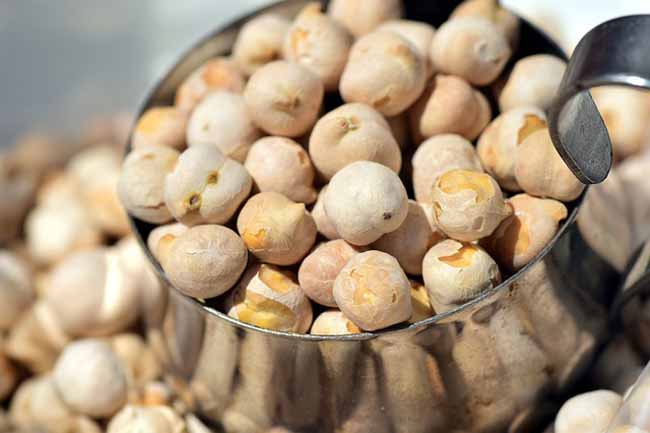
21. Goji Berries
Carb Content: 21 grams per ounce
These bright red berries have become popular in recent years due to their health benefits, particularly a high level of antioxidants.
One study found that supplementing with goji berries resulted in high antioxidant levels and protected against macular degeneration in the elderly (40).
Additionally, researchers in China showed that beta-sitosterol, a compound in goji berries, may help shrink cancer cells (41).
Just a handful of these potent berries can be eaten as a snack, added into trail mix, or sprinkled on top of granola or oatmeal.
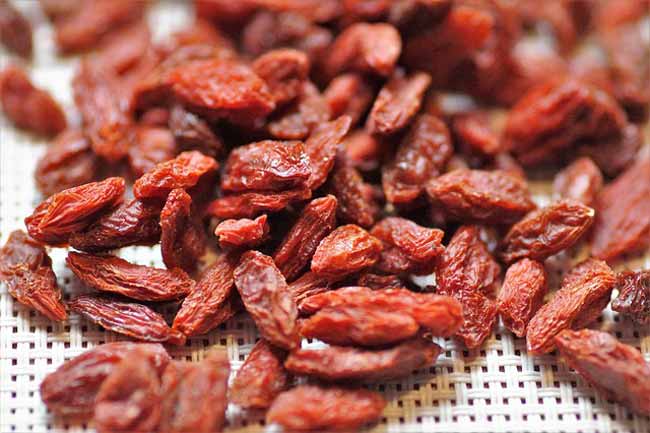
=> 12 life-changing benefits of Goji Berries
Quick Carbs Recap
As you can see from the above list of best carbs to eat, carbohydrate is not the enemy; quite the opposite, in fact.
Carbohydrate foods are vital for health, not just for fueling us with energy but because they come packaged with essential vitamins, minerals and phytonutrients.
Carbohydrates provide energy for our cells and spare the need to use protein from our muscles and organs to keep us functioning. Carbohydrate also helps maintain blood glucose during exercise and restores muscle glycogen during rest and recovery.
That said, do your best to steer clear of simple carbohydrates from processed foods. Where possible try to eat whole, plant foods.
Make sure you're getting enough good carbs in your diet.
=> Your next Read: 21 High-Protein Vegetables
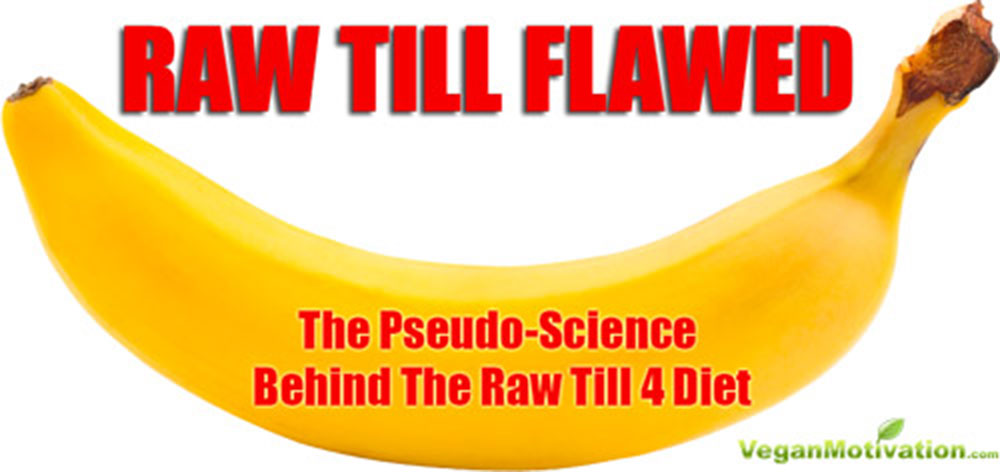

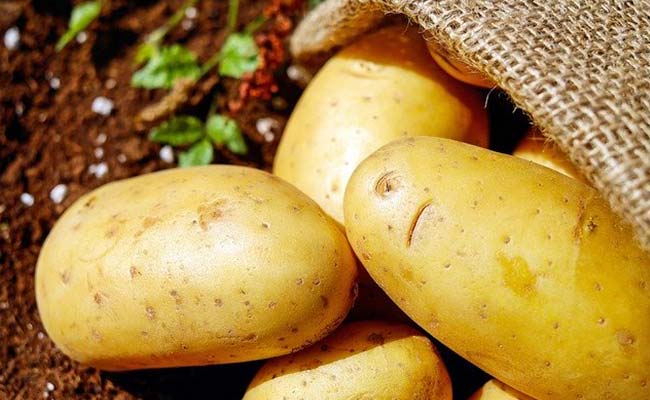

At 84 years energy is what I require with less weight Thank you Peter
Nov 10, 2022 at 7:19 am
Glad I could help. Wishing you good health and more energy!
Nov 10, 2022 at 1:09 pm